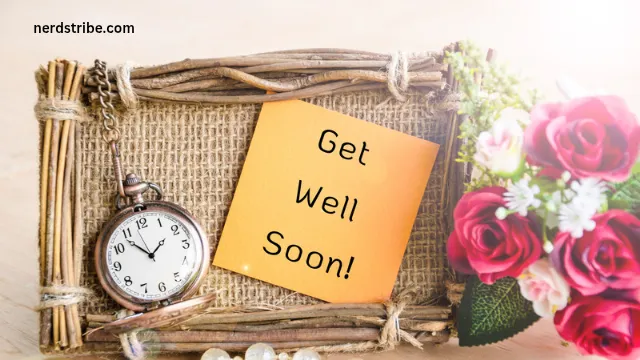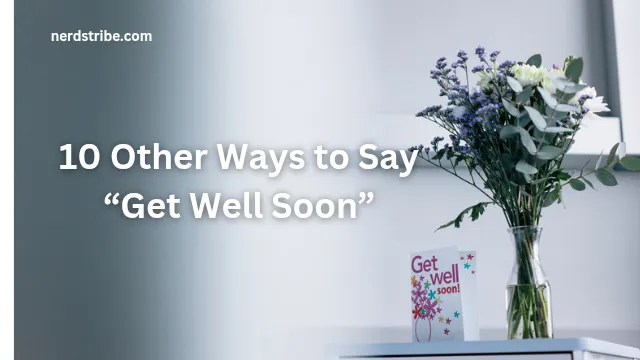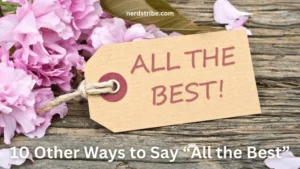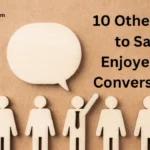When someone we care about falls ill, it’s only natural to want to lift their spirits with a few kind words. But have you ever paused to think about how overused the phrase “Get well soon” has become? While it’s undeniably kind, it might not always capture the depth of your emotions or the uniqueness of your relationship with that person. Words hold power, and the way we express our care can make all the difference in someone’s recovery journey.
In moments of illness or struggle, a heartfelt, creative message can serve as a beacon of warmth and encouragement. Imagine receiving a message that feels truly personal—something that shows the sender has taken time to craft their words with care. Whether you’re supporting a close friend, a coworker, or even an acquaintance, finding new ways to say “Get well soon” can help you convey your sentiments in a more meaningful way.
This blog post will guide you through 10 thoughtful alternatives to “Get well soon” and show you how to adapt these messages to suit different situations. From lighthearted humor to deeply touching words of comfort, you’ll discover ideas that leave a lasting impression. Let’s explore how to go beyond the ordinary and make your wishes truly memorable.

Contents
- 0.1 1. “Sending Healing Thoughts Your Way”
- 0.2 2. “Take All the Time You Need to Rest”
- 0.3 3. “Wishing You Comfort and Strength”
- 0.4 4. “Here’s to a Speedy Recovery”
- 0.5 5. “You’ve Got This!”
- 0.6 6. “Hoping Each Day Brings You Closer to Recovery”
- 0.7 7. “Sending You Lots of Love and Care”
- 0.8 8. “Thinking of You and Wishing You the Best”
- 0.9 9. “Can’t Wait to See You Back to Your Old Self”
- 0.10 10. “If You Need Anything, I’m Here for You”
- 1 Conclusion: Thoughtful Words Make a Difference
- 2 FAQs
- 2.1 Why should I avoid saying “Get well soon” every time?
- 2.2 What should I consider before choosing an alternative phrase?
- 2.3 Can I use humor in my message?
- 2.4 Are these alternatives suitable for formal contexts?
- 2.5 What’s the best way to deliver these messages?
- 2.6 Should I follow up after sending a message?
1. “Sending Healing Thoughts Your Way”
This phrase emphasizes the positive energy you’re sending to the person. It’s particularly fitting if you believe in mindfulness or spiritual practices.
- Example: “I’m sending you all the healing thoughts I can muster. May you feel stronger each day.”
- Why it works: It shifts focus from the illness to recovery and positivity.
2. “Take All the Time You Need to Rest”
This shows you value the person’s well-being over everything else.
- Example: “Don’t rush back too soon. Take all the time you need to heal.”
- Why it works: It communicates patience and understanding, removing any pressure.
3. “Wishing You Comfort and Strength”
This is great for those recovering from something emotionally taxing or a serious illness.
- Example: “I’m wishing you all the comfort and strength you need during this time.”
- Why it works: It’s compassionate and can be used in both personal and professional contexts.
4. “Here’s to a Speedy Recovery”
This phrase keeps it light and optimistic.
- Example: “Here’s to hoping you bounce back in no time!”
- Why it works: It conveys hope without being too formal or heavy.
5. “You’ve Got This!”
A motivational phrase that works wonders for uplifting someone’s spirits.
- Example: “I know you’ve got this! Can’t wait to see you back on your feet.”
- Why it works: It instills confidence and encouragement.

6. “Hoping Each Day Brings You Closer to Recovery”
This is perfect for longer recovery periods, offering steady encouragement.
- Example: “Each day is a step closer to feeling like yourself again. You’re doing great!”
- Why it works: It acknowledges the journey of healing.
7. “Sending You Lots of Love and Care”
This works well for close friends and family members.
- Example: “I’m sending you all the love and care in the world. You mean so much to me.”
- Why it works: It adds a personal and heartfelt touch.
8. “Thinking of You and Wishing You the Best”
A neutral, thoughtful message suited for professional or formal settings.
- Example: “Thinking of you during this time and wishing you the best in your recovery.”
- Why it works: It’s considerate without being overly personal.
9. “Can’t Wait to See You Back to Your Old Self”
This conveys optimism and anticipation.
- Example: “I can’t wait to see you back to your old self. You’ve always been so resilient!”
- Why it works: It inspires hope and reminds them of their strength.
10. “If You Need Anything, I’m Here for You”
This offers both emotional and practical support.
- Example: “Let me know if there’s anything I can do for you. I’m always here to help.”
- Why it works: It shows genuine care and opens the door for further communication.
Conclusion: Thoughtful Words Make a Difference
Illness can make people feel isolated, and even small gestures like a heartfelt message can remind them they’re not alone. By going beyond “Get well soon,” you show that you’ve put thought into how you communicate your care and support. Your words have the potential to uplift, encourage, and bring hope.
When choosing an alternative, consider the person’s situation, your relationship with them, and what message feels most authentic. Sometimes, humor might work wonders, while other times, sincerity is key. Whatever the case, don’t shy away from expressing your genuine emotions.
Remember, it’s not just about finding the right words but delivering them with kindness and intention. The effort you put into your message will always shine through. As you send your wishes, know that you’re making a meaningful impact on someone’s journey to wellness.
FAQs
Why should I avoid saying “Get well soon” every time?
It can feel generic and impersonal, especially if the recipient is going through a challenging time.
What should I consider before choosing an alternative phrase?
Think about the person’s personality, your relationship, and the nature of their illness or recovery.
Can I use humor in my message?
Yes, but only if the person appreciates humor and the situation allows for it.
Are these alternatives suitable for formal contexts?
Yes, options like “Thinking of you and wishing you the best” work well in professional settings.
What’s the best way to deliver these messages?
Handwritten cards, text messages, or even a phone call can make your words feel more personal.
Should I follow up after sending a message?
Absolutely! Checking in later shows ongoing care and strengthens your connection.








